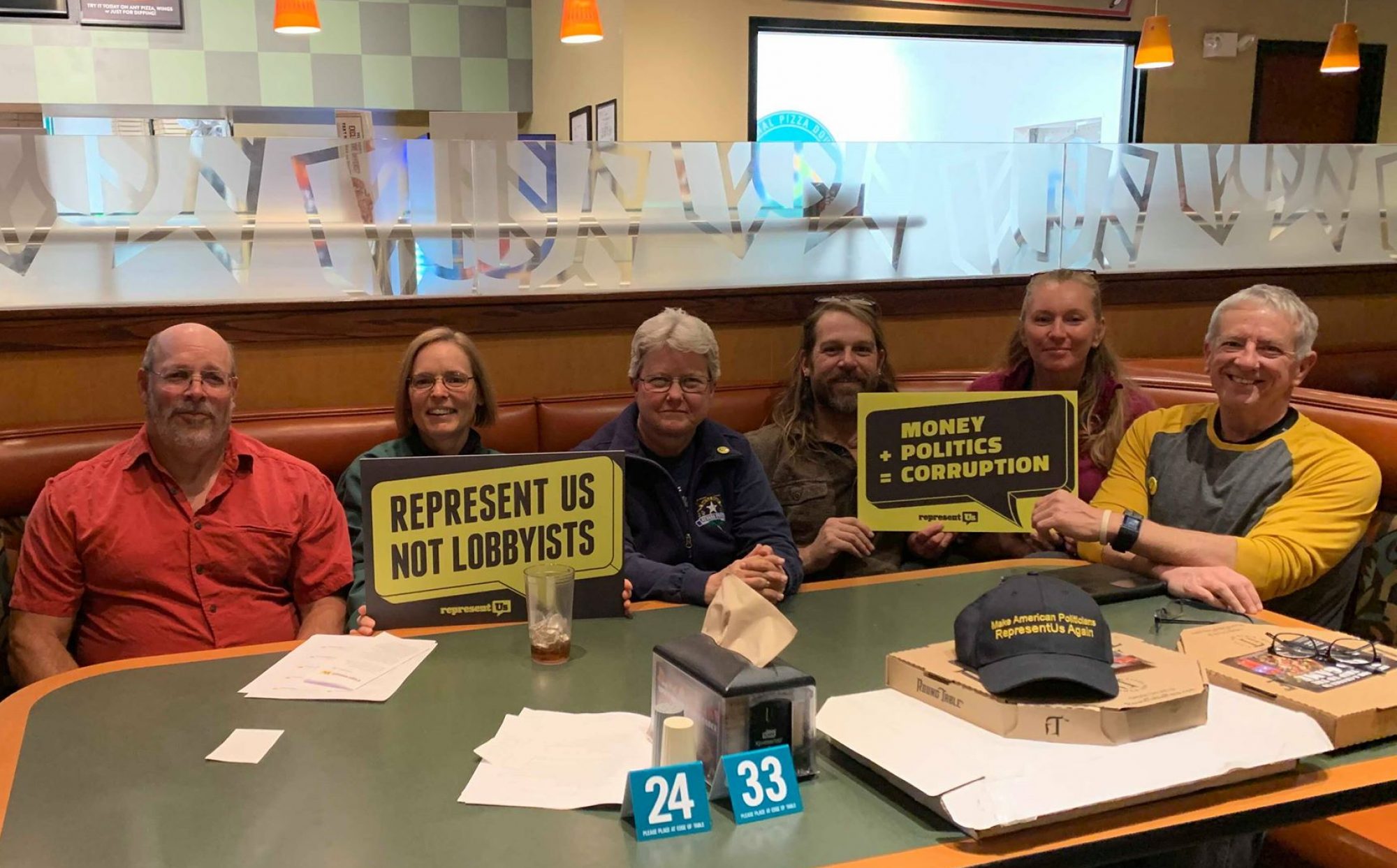The American Anti Corruption Act (AACA)
1 – Fix Our Broken Elections:
Let voters rank their top candidates
Under the Act, voters can rank their top candidates, allowing them to support their top choice without fear of inadvertently helping elect the other party’s candidate. This makes it easier to elect independent-minded candidates who aren’t beholden to establishment special interests.
Learn more about RCV
End gerrymandering
The Anti-Corruption Act ends gerrymandering by creating independent, fully transparent redistricting commissions that follow strict guidelines to ensure accurate representation for all voters, regardless of political party.
Learn more about gerrymandering
Let all voters participate in open primaries
By controlling the primaries, the political establishment controls which candidates we can vote on.
The Act requires all candidates for the same office compete in a single, open primary controlled by voters, not the political establishment. This gives voters more control over our elections and more choices at the ballot.
Change how elections are funded
Running a political campaign is expensive, but few Americans can afford to donate to political campaigns. That makes politicians dependent upon – and therefore responsive to – a tiny fraction of special-interest donors.
The Act offers every voter a small credit they can use to make a political donation with no out-of-pocket expense. Candidates and political groups are only eligible to receive these credits if they agree to fundraise solely from small donors. The Act also empowers political action committees that only take donations from small donors, giving everyday people a stronger voice in our elections.
2 – Stop Political Bribery:
Make it illegal for politicians to take money from lobbyists
Politicians get extraordinary sums of money in the form of campaign donations from the special interests who lobby them. In return, politicians create laws favorable to these special interests – even when those laws hurt voters.
Under the American Anti-Corruption Act, people who get paid to lobby cannot donate to politicians.
Ban lobbyist bundling
Lobbyists regularly bundle together big contributions from their friends and colleagues and deliver them in one lump sum to politicians. This turns lobbyists into major fundraisers, giving politicians an incentive to keep them happy by working political favors.
The Act prohibits lobbyists from bundling contributions.
Close the revolving door
Lobbyists and special interests routinely offer public officials high-paying lobbying jobs. Politicians and their staff routinely move straight from government to these lucrative lobbying jobs, where they get paid to influence their former colleagues.
The Act stops elected representatives and senior staff from selling off their government power for high-paying lobbying jobs, prohibits them from negotiating jobs while in office, and bars them from paid lobbying activity for several years once they leave.
Prevent politicians from fundraising during working hours
Most federal politicians spend between 3 and 7 hours a day fundraising from big donors instead of working on issues that matter to voters.
Under the Act, politicians are prevented from raising money during the workday, when they should be serving their constituents.
3 – End Secret Money:
Immediately disclose political money online
Current disclosure laws are outdated and broken. Many donations are not disclosed for months, and some are never made available electronically, making it difficult for citizens and journalists to follow the money in our political system.
The Anti-Corruption Act ensures that all significant political fundraising and spending is immediately disclosed online and made easily accessible to the public.
Stop donors from hiding behind secret-money groups
Elections are being flooded with big money funneled through groups with secret donors. These secretive groups spend money directly to influence elections and make unlimited contributions to super PACs, which run ads to elect and defeat candidates.
Under the Act, any organization that spends meaningful funds on political advertisements is required to file a timely online report disclosing its major donors.
